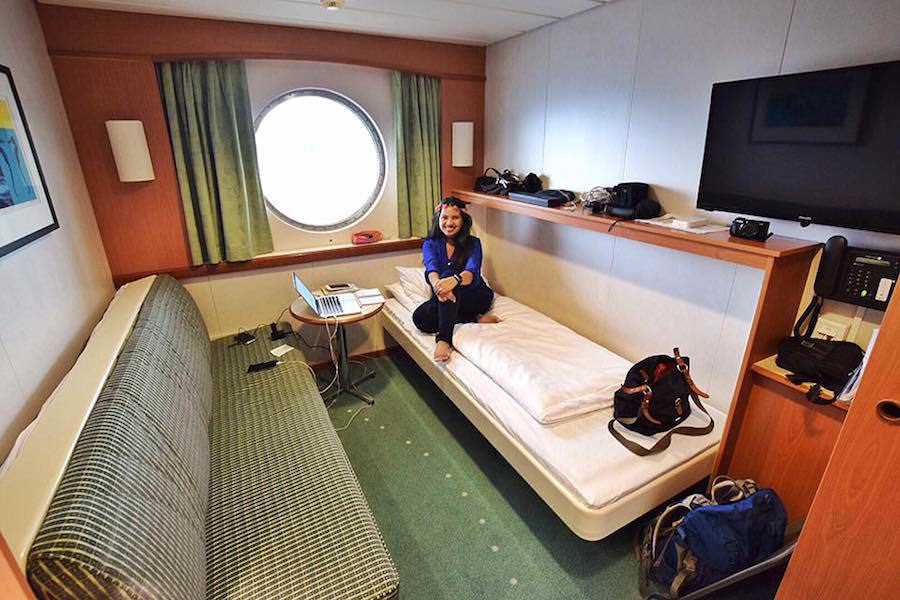7 Brilliant Ways to Earn More When You’re Abroad
Traveling and working abroad can be quite fulfilling, and most people are changed by the experience. However, not everyone has the means to make their stay abroad a financially rewarding or stable venture.

While expats and foreign workers do often earn more abroad than back home, on average, many others do not enjoy these advantages to the same extent as many of their compatriots. A lot of the time, the income earned from a job abroad is not sufficient to achieve or maintain a desired quality of life. One common scenario that causes a lot of financial distress is the adjustment period, where a lot of unexpected expenses seem to materialize out of nowhere in the first few months of one’s stay.

Others, however, may simply find that they have too much free time. This can be especially damaging to one’s mental health if this free time cannot be spent productively.
Regardless of why you want to earn more income, you’ll find that expats, students, backpackers, and even full-time workers have plenty of opportunities to earn a few dollars more. Here are a number of ways to make a little extra abroad.
Table of Contents
1. Online work
If you’ve got access to a suitable laptop and a stable internet connection, you’ll find a near-infinite number of online gigs, many of which will pay well if you have the experience and a well-defined portfolio and skill set.

Even if you lack a special skill, there are always openings available, especially related to blogging, content, management, and social media. These so-called, “less-skilled” online jobs can actually be a springboard to better-paying gigs in the future.
If you do have a special skill or some experience, you’ll find plenty of jobs that pay a decent amount as well. Postings related to graphic design, business development, writing and editing, site design, programming, and QA testing are frequently available.
Openings in niche fields such as music composition, film and sound editing, and expert reviews are also frequently open (or can be made open), and they can be a great choice even for full-time work if you have the skills and access to the right tools.
2. Babysitting

If your home country has a significant community in your host country, there is normally a fairly large demand for babysitters within that diaspora. Many of the locals may also appreciate some babysitting as well, especially in countries where it’s expected that both parents have careers outside of the home. If you love kids and have a bit of spare time, this is often a win-win situation for all involved. If you can’t stand kids, though you should probably consider something else, as children will be children regardless of what country you’re in!
3. Be an Au Pair

If your host country has an au pair program, it can be an excellent way for you legally enter a country to learn the local languages and customs while earning a small income as well. Even in cases where you may not be paid for childcare services, room and board are typically included, and this can go a long way to helping you save money when you’re abroad. Combined with a part-time or regular job and some other means of earning an income, being an au pair can be an excellent way to both experience the country and have a stable income as well.
4. Seasonal labor
Australia, the US, and other countries with a large agricultural industry are often dependent on seasonal labor for picking crops that are in season. This is especially attractive if you’re a student or otherwise relatively young and in good physical condition. You may be making minimum wage, but in some countries, such as Australia, this can be quite high, all things considered.
5. Teach English Abroad

If you’re new to TEFL, then also check out our introduction to teaching English article abroad with TEFL!
The demand for English as a Second Language (ESL) courses have been in continuous growth since the 2000s, propelled by demand in East Asian countries, such as in China, Japan, and Korea. Depending on your experience and your country of origin, you can stand to earn a significant amount of money, and many Westerners actually live in those aforementioned countries with an ESL teacher’s income. It’s not a job that you necessarily have to do full-time either, as there are plenty of opportunities to do this part-time, or on the side as well.
- How to Teach English in Thailand – The Land of Smiles!
- How to Teach English in China – English Teaching Salaries in China
- How to Teach English in South Korea – TEFL Teaching Jobs in SoKor
- How to Teach English in Singapore – TEFL Teaching Job in Singapore
- How to Teach English In Vietnam – Guide to Teaching in Southeast Asia
More TEFL country guides coming soon!
Already know how to get started teaching English abroad? Just want to take the online TEFL course? OK! Then get 60% off your 120 hours online TEFL course here with Promo Code TWOMONKEYS.
6. Be a tour guide

If you’re a student or an expat with at least a year or so of time in-country, you can reach out to local businesses, guide companies, and tourism boards to see if you can become a tour guide. This is especially attractive if you speak both the local language and the language of any country whose tourists frequently visit your host country.
While being a tour guide may not earn you much (some are only paid in tips), large groups can often give very substantial tips which can be enough to live off of. If you find you have a real connection with your host country, being a tour guide can also be a great way to learn even more about it.
7. Work on a Cruise Ship

While this is definitely a full-time job, working on a cruise ship allows you to travel to multiple ports all over the world. The crew are typically allowed to do some sight-seeing and traveling at each port, which has made this occupation a very attractive proposition for many young people with some service industry experience.
The atmosphere of a cruise ship is also very international in nature, and you’ll be in regular contact with people from dozens of countries all over the world. You also get to save a lot of money working on a cruise ship, as expenses for the crew are quite minimal, unless you want to blow it all in one place during a port call.
Conclusion
Regardless of how you decide to make that extra buck on the side, it’s important to keep yourself protected. Foreigners are at high risk for illness and accidents when in foreign countries, due to unfamiliarity with how things are run, and a lack of immunity to local germs and pathogens. Jobs that bring you in direct contact with others such as cruise ship work and being a tour guide will practically guarantee you will be sick sooner or later.

To avoid this, it’s best to get some kind of insurance coverage before leaving to work abroad. Investing in international health insurance from an insurer like Now Health International before you depart will not only help keep you covered but also help each cent you make count.
![]() Are you on Pinterest? Pin these!
Are you on Pinterest? Pin these!








I wanna be Nomad someday. I used to travel around Philippines. I wanna know myself more I wanna find myself what I really want.. This page really helps me to make my Find-Yourself-Travel dream come true. But I have a son to take care with he is 8 yrs old and I really don’t know if this dream will continue. I will still look for hopes thank you so much for inspiring me, – Leia, 25